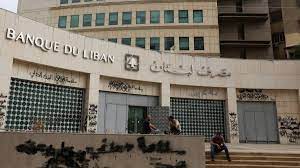The interim governor of Lebanon’s central bank urged the ruling class to enact economic and financial reforms right away, warning that the bank would not provide loans to the government and did not intend to print money to make up for the massive budget deficit in order to prevent inflation from getting worse.
Wassim Mansouri made his remarks over a month after assuming control of the central bank when Riad Salameh’s term as president expired on July 31. The largest financial and economic catastrophe to hit Lebanon in modern times is currently roiling the country. The country’s political class, which is held accountable for decades of corruption and poor management, has resisted economic and financial changes demanded by the international community since the financial crisis started in October 2019. Mansouri has been pressuring the government to enact reforms ever since assuming office, warning that the central bank cannot keep spending money to cover the government’s budget deficit. “Losses increase as well as the possibility of a state collapse every day we waste without drafting laws,” he remarked on Friday. Mansouri noted that the central bank had requested a budget without deficits, but the 2023 budget that the government adopted last week had a 24% deficit. The central bank will undoubtedly not finance the deficit by providing money to the government in either dollars or Lebanese pounds, according to Mansouri. “You know what this will result in,” the statement reads. “Lebanese pounds will not be printed to cover the deficit.” In an apparent allusion to smuggling, he continued, “The state should pursue tax collection, reopen state institutions, and put more control on what flows through its border for taxation.” Mansouri claimed that since the crisis started, Lebanon’s economy has become cash-based and issued a warning that this could have long-term effects on the nation. Two weeks ago, a forensic investigation into the central bank of Lebanon by a New York-based company exposed Salameh, the bank’s former governor, to years of malfeasance and $111 million in “illegitimate commissions.” According to Alvarez & Marsal, the audit was “significantly delayed and slowed” by the central bank’s “refusal to provide direct access to its systems and to allow work to be conducted” on its property. Mansouri declared on Friday that the central bank will work with Alvarez & Marsal and provide all necessary paperwork to the foreign firm as well as the legal authorities in Lebanon. Dollar shortages in Lebanon at the end of 2019 sparked panic and a bank run as the banks placed stringent withdrawal restrictions on customers who held their cash there. Lebanon’s central bank lured commercial banks to lend dollars at high-interest rates in what some financial experts and the World Bank referred to as a Ponzi scheme to stay awash in cash. Then, the banks used even greater interest rates to entice clients to deposit their funds in their accounts. In the past four years, the Lebanese pound has lost more than 95% of its value, further driving the nation’s 6 million citizens, including 1 million Syrian refugees, into poverty. Salameh, 73, finished his 30-year tenure as governor under a cloud of suspicion and was held accountable for the collapse of his nation’s economy. He resigned from his position and became sought after in Europe. Since late 2019, many people in Lebanon have accused him of being the cause of the nation’s financial collapse.

















